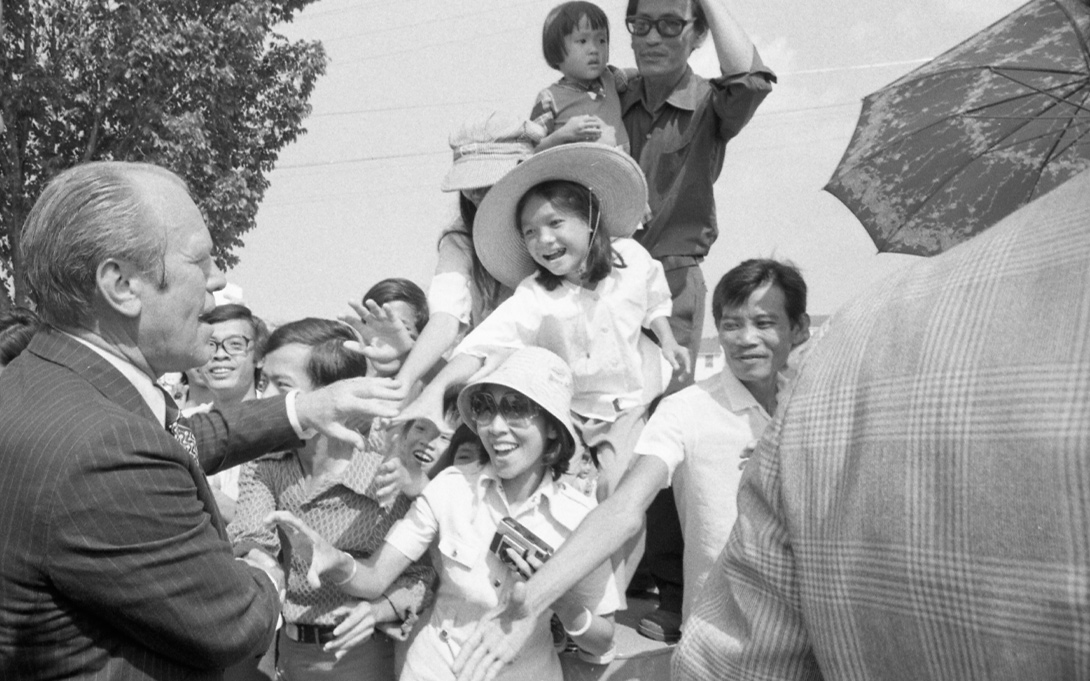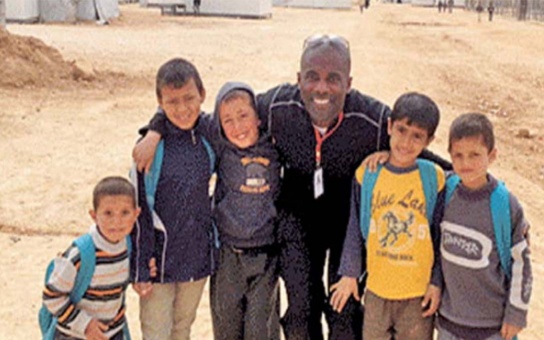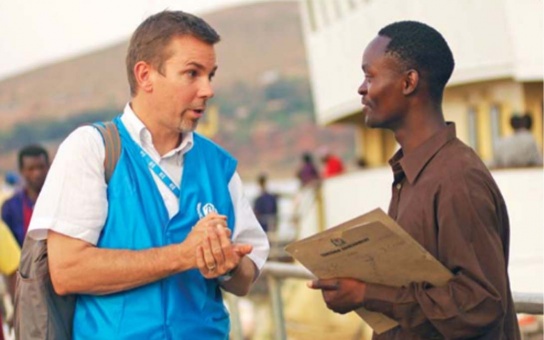
Take a moment to let this sink in.
In 2016, the UN Refugee Agency reported 65.3 million forcibly displaced people around the world, including 21.3 million refugees. That's the highest rate of forcible displacement since the agency began tracking the metric 65 years ago.
"Globally, one in every 122 humans is now either a refugee, internally displaced, or seeking asylum," reports the agency. "If this were the population of a country, it would be the world's 24th biggest."
It makes you wonder: How can policymakers ever hope to tackle a problem of such magnitude?
But Steven Corliss (MPP/JD '88), director of the agency's division of programme support and management, takes a different perspective. If we focus on a "human tide" or "refugee crisis," people tend to get overwhelmed. Instead, he says, we should focus on people.
That view is echoed by Hardy Vieux (MPP/JD '97), the Ford School's current Towsley Foundation Policymaker in Residence. Vieux is legal director at Human Rights First, where he represents U.S. asylum seekers.
While Corliss and Vieux live and work on opposite sides of the Atlantic (Geneva and DC, respectively), they share a passion for serving populations often overlooked. A few minutes with each, and it's obvious that their long hours come from being inspired, not discouraged, by the work.
They are also not alone in believing in the power of personal narratives to encourage others to join them.

One such narrative was recently shared by Ford School alumnus Richard Nguyen (MPP '08), the son of Vietnamese refugees who arrived in the U.S. in the 1970s following President Gerald R. Ford's commitment to welcome innocent victims of war.
"Ford did more than just direct resources to assist Vietnamese refugees," Nguyen wrote in his January op-ed, "A Republican president set the gold standard for welcoming refugees." Ford also took a personal interest, visiting refugee camps, including the camp where Nguyen's father awaited asylum.
"Having the President of the United States shake [my father's] hand and show support for refugees left a strong impression," he writes. Ford's actions toward Vietnamese refugees allowed America to advance its values and interests alike, says Nguyen. "I hope [today's] leaders have the moral courage and strategic insight to do the same."
Four days after Nguyen's op-ed was published, however, President Trump issued an executive order barring all refugee admissions to the United States for 120 days. The order sent ripples throughout the world. In the refugee policy sphere, resettlement agencies, humanitarian organizations, students, scholars, and especially refugees themselves grappled with the impact.
Vieux, who postponed his initial interview that week to help colleagues respond to the executive order, says he understands why some people worry that refugees might make our country less safe. "I think that's a valid question to ask," he offers. "However, our answer for the longest time has been a solid ‘no,' given the way our vetting processes work, particularly with resettlement."
This March, Vieux organized a panel of veterans to discuss the intersection between national security and human rights. Panelists expressed concern about recent policies that seek to restrict immigrants and refugees, particularly halting all flows from several Muslim-majority nations.
Such policies could actually harm U.S. security by giving talking points to those who thrive off of ‘us-vs.-them' narratives, Vieux worries.
John Ciorciari, director of the Ford School's International Policy Center, concurs. "A willingness to serve as a beacon and protector for victims of persecution has long been a significant aspect of America's global leadership," he writes. "Refugee admissions are a crucial means by which the U.S. expresses its values and demonstrates the will to uphold them."
The most important part of refugee policy today, Corliss believes, is "keeping the doors open" to people seeking protection, both in countries neighboring conflict zones and those further away, including through resettlement to the United States.
But calls for humanity to ‘do the right thing' can only go so far and need to be reinforced with evidence-based policy arguments, Corliss adds.
One idea gaining traction within the humanitarian community is to quantify the economic benefit of welcoming refugees. Economic impact studies can show how refugees "spark regional economic growth, job creation, and prosperity," says Steve Tobocman (MPP/JD '97), executive director of Global Detroit.
Tobocman and Associate Dean Elisabeth Gerber are co-leading a course for graduate students to begin work on the first economic impact study of refugees in southeastern Michigan.
Corliss holds firm to the belief that the increase in forcibly displaced people worldwide is a problem that the international community can manage. "You can see that in the fact that countries with far fewer resources are grappling with the most substantial numbers of refugees," he notes.
In order to solve the problem, however, "We all have to be on the same page," says Vieux.

Advocates hope different approaches—sharing personal narratives; describing how refugee resettlement boosts, rather than diminishes, national security interests; and quantifying the economic benefits of refugees—will encourage more stakeholders to get involved.
Vieux's end goal is to reach a refugee policy that is "durable, coordinated, and humane." Is it realistic?
"I do hold a lot of hope. I'll blame the people that raised me for that," says Vieux, who comes from a family of Haitian immigrants. "I get up [believing] today might be a better day than yesterday. I owe that to my work and the people we serve."
By Jacqueline Mullen (MPP'18) for State & Hill, the magazine of the Gerald R. Ford School of Public Policy
Below is a formatted version of this article from State & Hill, the magazine of the Ford School. View the entire Spring 2017 State & Hill here.